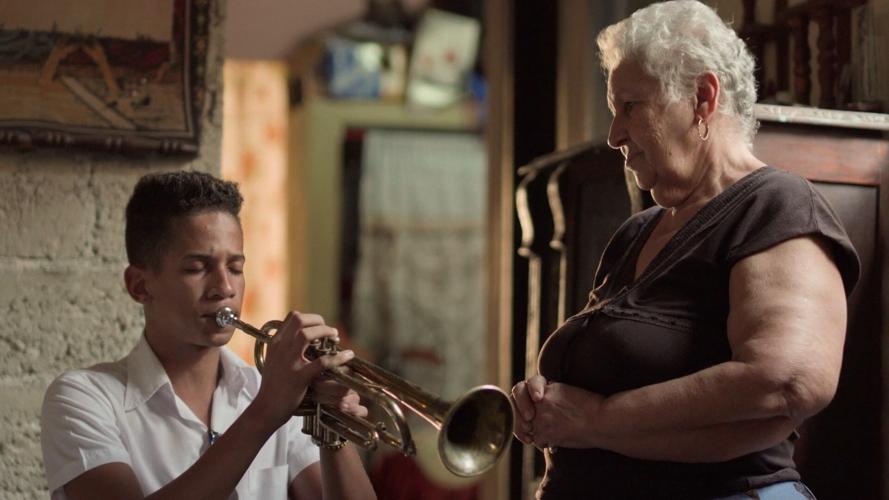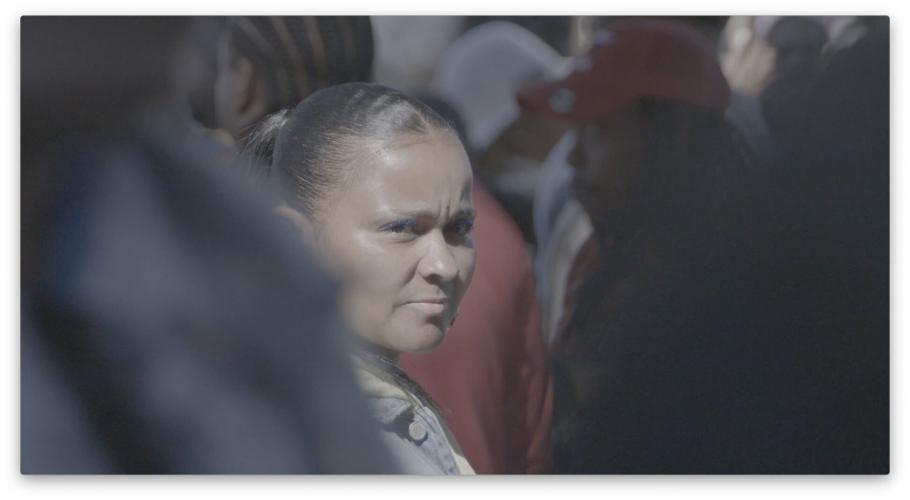When the New Orleans Film Festival opens on Nov. 2, two films that prominently feature New Orleans will be front and center.
One involves a New Orleans woman sentenced to a triple life sentence in prison, and the other looks at a group of Cuban musicians whose sheer desire to play music under myriad unfortunate conditions is an utter inspiration.
Both films, although very different, deal with triumphing over adversity.
In “Commuted,” debuting at the CAC Black Box, New Orleans director Nailah Jefferson tells the compelling tale of New Orleanian Danielle Metz, who received three life sentences plus 20 years in federal prison for dealing drugs in 1993.
Although a first-time, nonviolent offender, Metz had become entangled in her husband’s drug business.
Husband Glenn was indicted on 54 separate counts related to his notorious drug ring and is now serving life in prison. After her arrest, she was tried under RICO’s kingpin statute, and a judge decided to make an example of her.
Although many questioned whether the punishment fit the crime, Danielle Metz would serve 23 years in federal prison in California before then-President Barack Obama commuted her sentence.
'God thought otherwise'
“I became aware of Danielle when the bishop at the City of Love Church in Carrollton told us the story of a woman who was sentenced to triple life, but God thought otherwise,” recounted director Jefferson.
“That was the first time I knew of her. I got a call about Danielle later and was told she had a great story, and that I was a storyteller.
"So, after meeting Danielle at the church, I wanted to do a film about her immediately, but I’d never done a story about someone who’d gone through that much trauma.
The first conversation was difficult, Jefferson said.
"She was reluctant. She didn’t know me or trust me. It took seven years of filming a small bit at a time. She’d been in prison since she was 26, and thought she’d be there for the rest of her life.”
A difficult life
What sets Metz apart from many other people who find themselves in similar circumstances is that she chose to find hope when there wasn’t any and rise above her past.
It included getting pregnant her junior year of high school and dropping out, then seeing her baby’s father murdered, going on to marry 31-year-old drug trafficker Glenn Metz when she was still 18, and having another baby.
But, despite being discouraged by others not to further her education, she finished high school in prison, and then began to advocate for those she thought were unfairly sentenced.
Metz's story of redemption is exemplary. After her release, she went to SUNO, graduating on the dean’s list.
She is now rebuilding her fractured relationship with her children, who were raised by an aunt while she spent decades in prison.
To this day, she is actively working to change the system.
“People don’t realize how hard it is to start over after prison,” Jefferson said. “She’s become a major advocate for criminal justice reform, has been lecturing in prisons for years, and now through her job, helps and supports other women who’ve often chosen the wrong path, but deserve a second chance.”
Music from Cuba
If you love music, multiple Oscar-winning directors Rob Epstein and Jeffrey Friedman bring you “Musica!” at Prytania’s Uptown theater.
It’s the story of four musicians at the Roldan Conservatory of Music in Cuba, whose talent shines through although they have no instruments of their own, and what they use while studying is often in need of repair.
Enter “Horns to Havana,” a group of artisans from New York City who volunteer to bring instruments and supplies to Havana’s students.
Epstein is intimately acquainted with two of the luthiers (who make stringed instruments) from “Horns to Havana.”
“The two people you see prominently in the film are the Gages, who are my sister and brother-in-law,” said Epstein.
“They have been going to Cuba since 2011, bringing instruments and running workshops on the art of repairing them. One year, they invited Jeffrey and me to tag along. Once we saw what they were doing at the conservatory and met the musicians, we began filming in 2015," Epstein said. It would take eight years.
Classics to jazz
You’ll fall in love with these four extremely talented musicians who play everything from the classics to jazz.
In fact, jazz was forbidden from being taught at the Conservatory until Wynton Marsalis came there to teach a master class. Jazz is now part of the curriculum.
When you consider the expertise of these performers, the fact that they don’t have their own instruments is nothing short of miraculous.
But their country is enduring hard times.
“Certainly, the American embargo hasn’t helped, and when the Soviet Union ceased to exist, Cuba lost a big chunk of its financial base,” Friedman said.
"They had arrangements with Venezuela, but that didn’t go well. We started going in the Obama years when he opened it up, and there were dollars flowing into the economy, but when Trump came in, he shut the program down, and it’s not really been a priority for Biden.
"It’s a hard time for a little socialist country, with active opposition from its powerful neighbor to the north.”
There’s sheer joy, however, when philanthropists arrange for the Cubans to come to New Orleans and play with the musicians at Preservation Hall. The jam session is off the charts!
“What I like about this place,” said Lily, the double bass player, “is — everything!”
The complete film festival lineup can be found at neworleansfilmsociety.org/film-guide.
Leslie Cardé can be reached at lesliecardejournalist@gmail.com.


